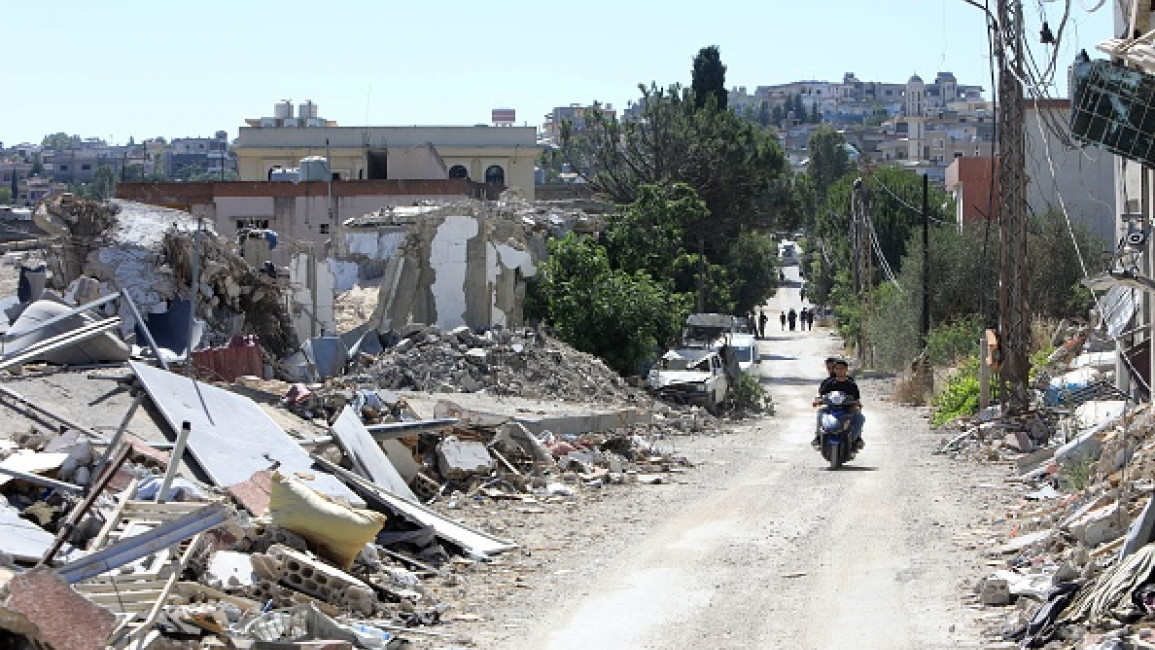Germany steps up Lebanon invovlement amid Israel war threats
Germany has dispatched the deputy chief of its intelligence service to Lebanon to meet with Hezbollah, days after German Foreign Minister Annalena Baerbock concluded a brief visit to Beirut amid escalating risks of a wider war between Israel and Lebanon.
According to Lebanese newspaper Al-Akhbar, which is close to Hezbollah, the German Federal Intelligence Service (BND) Deputy Director Ole Diehl met Hezbollah's second in command Sheikh Naim Qassem in Beirut's southern suburbs on 29 June. Berlin and Hezbollah neither confirmed nor denied the meeting.
Al-Akhbar cited sources as saying that the “the atmosphere of the session was positive.” The two sides reportedly discussed the rising tensions between the Lebanese group and Israel and ways to prevent the outbreak of a full-scale war.
The report added that the German deputy intelligence director “did not carry any threatening messages… nor did he carry any comprehensive initiative”.
Germany is one of Israel's closest allies and top arms suppliers but has also mediated in the past prisoner swap deals between Hezbollah and Israel. It has also been part of the UNIFIL peacekeeping mission in Lebanon.
It is not clear whether the Germans are offering mediation to resolve tensions between Hezbollah and Israel. The last attempt to defuse tensions was led by US envoy Amos Hochstein but failed to make a breakthrough.
German Foreign Minister Annalena Baerbock last week cautioned that "miscalculation" could trigger all-out war between Israel and Hezbollah in Lebanon, urging the need for "extreme restraint" as tensions soar.
"With every rocket across the Blue Line between Lebanon and Israel, the danger grows that a miscalculation could trigger a hot war," Baerbock said on X during a visit to Beirut, referring to the demarcation line between Israel and Lebanon.
"All who bear responsibility must exercise extreme restraint," she added.
German media and Israeli threats
Israel will begin a ground offensive in Lebanon in the third or fourth week of July, according to a report on Monday in the German tabloid Bild that was widely reported in the Israeli media.
According to the report, Israel expects that Hezbollah will not stop its attacks on northern Israel as long Israel continues its devastating war on Gaza.
Israel and Hezbollah began tit-for-tat attacks immediately following the beginning of the war on 7 October, prompting the evacuations of tens and thousands of civilians from the border areas of Israel and Lebanon, with Israel leaving many areas in the south completely destroyed.
The Bild report comes as German airline Lufthansa announced earlier on Monday that it was suspending night flights to Beirut until the end of July following fears of a full-scale war between Israel and Hezbollah. Daytime flights to the Lebanese capital will continue uninterrupted.
The German government has also urged all of its citizens to leave Beirut, as did other countries including Kuwait, Russia, North Macedonia, Canada and the Netherlands.
On Monday night, the US Embassy in Lebanon issued an emergency Security Notice, encouraging “US citizens traveling to or from Lebanon to monitor their flight status closely, be aware that itineraries could change with little or no warning, and make alternate plans.”
“The US Embassy also reminds US citizens to review the current Travel Advisory, which strongly urges U.S. citizens to reconsider travel to Lebanon,” the statement read.
“The security environment remains complex and can change quickly. In particular, we call your attention to the Country Summary, which advises that the Lebanese government cannot guarantee the protection of US citizens against sudden outbreaks of violence and armed conflict.”
Tensions between Israel and Hezbollah have escalated in recent weeks, with the US despatching presidential envoy Amos Hochstein to try to deescalate the situation two weeks ago.
However, during this time Israeli Foreign Minister Israel Katz warned Hezbollah of “all-out war” and said that the group would be “destroyed” and the rest of Lebanon “severely beaten”.
In retaliation, Hezbollah released a video declaring that it would wage a war with “no limit, rules and restraint” on Israel should it continue to kill civilians in Lebanon.
Despite this, both Israeli Prime Minister Benjamin Netanyahu and Defence Minister Yoav Gallant have said they want to avoid war with the Iranian-backed Lebanese group, though such diplomacy has been accompanied by threats against all of Lebanon.
Last week, Gallant said that while Israel does “not want war” with Hezbollah, it is prepared to inflict “massive damage on Lebanon” and send the country “back to the stone age”.
Most analysists agree that Hezbollah could inflict severe damage on Israel in a full-scale war scenario, with the group having the technological capabilities to wage offensive air strikes deep into the country, while also having a strong defensive ground force.
Israel’s attacks on Lebanon have so far killed at least 480 people, most of whom are fighters but also including at least 96 civilians.
On the Israeli side, at least 15 soldiers and 11 civilians have been killed, according to Israeli authorities.







 Follow the Middle East's top stories in English at The New Arab on Google News
Follow the Middle East's top stories in English at The New Arab on Google News


